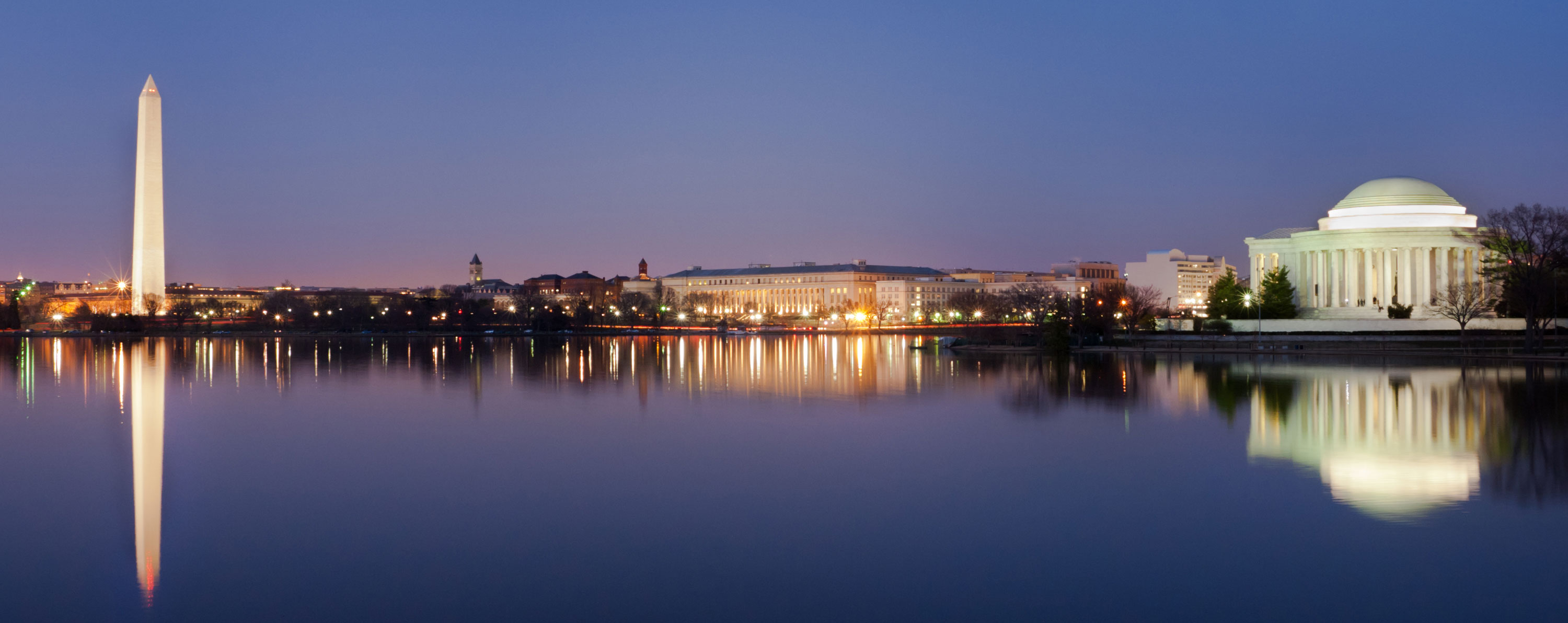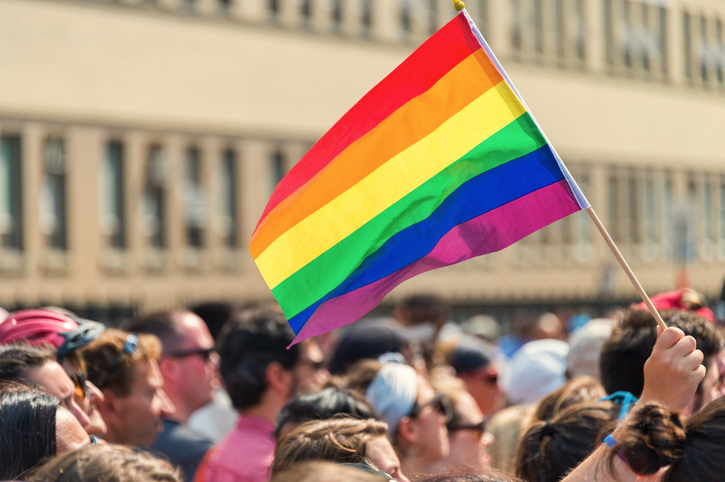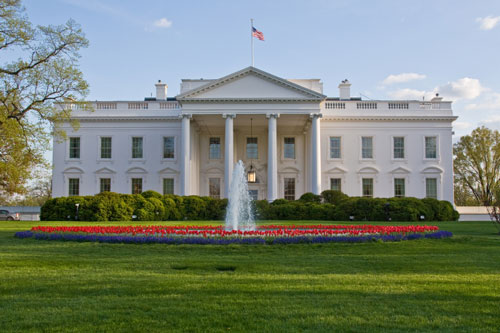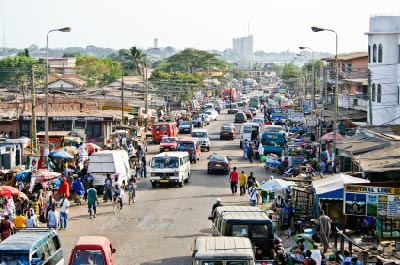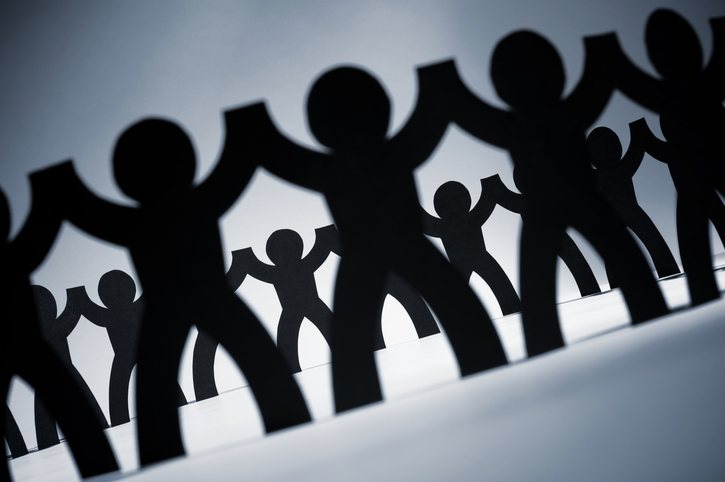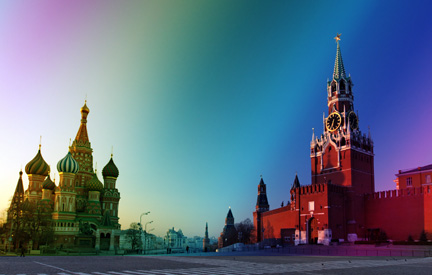 In recent months, public attention to the ongoing crackdown on LGBT rights in the Russian Federation and its potential impact on the Winter Olympics in Sochi, Russia in February 2014 has increased significantly. President Obama addressed the issue on the Tonight Show, saying:
In recent months, public attention to the ongoing crackdown on LGBT rights in the Russian Federation and its potential impact on the Winter Olympics in Sochi, Russia in February 2014 has increased significantly. President Obama addressed the issue on the Tonight Show, saying:
“I think Putin and Russia have a big stake in making sure the Olympics work, and I think they understand that for most of the countries that participate in the Olympics, we wouldn’t tolerate gays and lesbians being treated differently. They’re athletes, they’re there to compete. And if Russia wants to uphold the Olympic spirit, then every judgment should be made on the track, or in the swimming pool, or on the balance beam, and people’s sexual orientation shouldn’t have anything to do with it.” – President Obama
This fact sheet summarizes the developments in Russia and the guidance that we have received to date from our colleagues in Russia.
LGBT People Are Being Targeted by Anti-LGBT Propaganda and Foreign Agents Laws
Following the fall of the Soviet Union in 1991, Russia liberalized some of its anti-LGBT laws. Most notably, homosexual relationships were decriminalized in 1993. Transgender Russians have also been allowed to change their legal gender on identity documents since 1997, although there are many obstacles to the process and invasive surgical requirements remain in place. Despite these liberalization trends during the immediate post-Soviet period, in recent years, Russian authorities have routinely denied permits for Pride parades, intimidated and arrested LGBT activists and condoned anti-LGBT statements by government officials. ILGA-Europe, the European section of the International Lesbian, Gay, Bisexual, Trans and Intersex Association, rates Russia as the least protective country in Europe for LGBT citizens, ranking it 49th out of the 49 European countries rated in its annual survey.
In June 2013, the Russian duma in Moscow passed a new law banning the “propaganda of non-traditional sexual relationships”to minors. The new federal law is closely related to several regional laws that were already on the books, all of which seek to penalize “propaganda” of homosexuality, generally with the intent of “protecting” minors. The city of Sochi, which is the site of the upcoming Winter Olympics, has one of those regional laws in place. And while the regional laws are not uniform, like the new federal law, they all tend to advance vague definitions of propaganda that lend themselves to the targeting and ongoing persecution of the country’s LGBT community. The language of this new law focuses on “non-traditional” sexual relationships, to contrast with “traditional values” or “traditional family” language that Russia is promoting at the UN to oppose positive statements supporting the human rights of LGBT people.
The federal anti-LGBT propaganda law, as signed by President Putin on June 29, entered into force in Russia on June 30 of this year. (The official version in Russian is published here.) In the federal law, propaganda is defined as: “distribution of information that is aimed at the formation among minors of nontraditional sexual attitudes, attractiveness of non- traditional sexual relations, misperceptions of the social equivalence of traditional and non-traditional sexual relations, or enforcing information about non-traditional sexual relations that evokes interest to such relations . . . .”
The new law sets administrative fines for LGBT propaganda at 4,000 to 5,000 rubles for individuals (about $120 - $150 U.S. dollars) and up to 800,000 to 1 million rubles for NGOs, corporations or other legal entities (about $24,000 - $30,000 U.S. dollars). More severe administrative fines are allowed for propaganda transmitted via the Internet or other media networks or by a foreign citizen. Foreigners are also subject to 15 days of prison and deportation from Russia.
It is too early to tell how aggressively the new federal law will be enforced, but several government officials have warned of a robust intent to enforce the legislation, including during the upcoming Sochi Olympics, and LGBT activists are themselves intent on challenging the law on human rights grounds. Moreover, while the law suggests that only information directed at children should expose an individual or an organization to liability, prosecutions under similar laws in the regions have not dwelled on this nexus to children and the federal law’s heightened focus on the internet, where minors have an opportunity to view such information, suggest that the law could be applied broadly and with little regard to any notion of child protection. LGBT citizens and activists in Russia are increasingly concerned, as this law is being implemented at a time and in an environment of increasing violence and hatred of LGBT individuals and as LGBT defenders are being subjected to fines and prosecutions as “foreign agents.”
A group of extremist organizations in the United States have signed a joint statement supporting the law, and the conservative, U.S.-based Catholic Family & Human Rights Institute has been promoting it at the United Nations.
![]()
The Council for Global Equality penned an open letter to Russian President Vladimir Putin. The letter expressed grave concerns at recent legislation – signed by Putin into law, or otherwise under consideration in the Duma – that demonizes and discriminates against Russian citizens who are lesbian, gay, bisexual or transgender (LGBT).
Read the letter: Open Letter to President Putin on Russia’s Discriminatory Anti-LGBT Laws
Regional Prosecutions of LGBT Individuals and Groups
To date, there have been a number of legal actions taken under the regional anti-LGBT propaganda laws. In St. Petersburg in particular, activists and performers, including international superstars like Madonna and Lady Gaga, have faced fines and legal proceedings for expressing support for the local LGBT community. One individual was arrested and fined in St. Petersburg for holding a sign supporting LGBT rights that sated simply “Gay is Normal.” Six LGBT activists were also detained in front of the State Children's Library in Moscow in July with another “Gay is Normal” banner. And at the end of July, four Dutch videographers filming a documentary on LGBT rights in Russia were briefly detained under the federal law, supposedly for interviewing LGBT youth, and then released and deported on a technicality.
In addition to the federal and regional anti-LGBT propaganda laws, in 2012 the Russian parliament also passed a “foreign agents” law that requires NGOs that receive funding from abroad to register as foreign agents if they engage in any political activity, as vaguely defined. Of the five civil society organizations prosecuted to date under this provision, two have been LGBT groups. In St. Petersburg in June 2013, the LGBT organization “Coming Out” and its director were each found guilty under the law. The director was personally fined 300,000 rubles (about $9,000 U.S. dollars). The organization was also fined 500,000 rubles (about $15,000 U.S. dollars). The trial was widely regarded as a travesty of justice and the charges against the organization were recently overturned on appeal and sent back for re-hearing. Nonetheless, defenders of the human rights of LGBT people in Russia believe these two laws – the anti-LGBT propaganda law and the foreign agents law – will continue to be deployed in a coordinated fashion to shut down LGBT advocacy organizations and silence activists throughout the country.
Hate Violence on the Rise
LGBT advocates in Russia have reported numerous recent cases of LGBT hate violence, and the U.S. State Department’s annual Human Rights Report notes the prevalence of anti-LGBT skinhead violence, to which the police often fail to respond. LGBT Pride events in St. Petersburg and Moscow were marked by violence and arrests again this summer. And in May 2013, a 23-year old man was sexually assaulted and brutally killed in what was widely reported in both local and international media as an anti-LGBT hate crime. The murder occurred in Volgograd, Russia, within a context of rising national homophobia.
The State Department’s information for LGBT travelers in Russia warns that: “Discrimination based on sexual orientation is widespread in Russia. Harassment, threats, and acts of violence targeting LGBT individuals have occurred. Government officials have been known to make derogatory comments about LGBT persons. . . . Public actions (including dissemination of information, statements, displays, or perceived conspicuous behavior) contradicting or appearing to contradict [anti-LGBT propaganda] laws may lead to arrest, prosecution, and the imposition of a fine. LGBT travelers should review the LGBT Travel Information page.”
New Homophobic Law to Remove Children from LGBT Families and Individuals
In September, the Russian Duma introduced new proposals to accelerate the crackdown on the LGBT community, the most alarming of which is a draft law introduced by Deputy Akexey Zhuravlev that makes “nontraditional sexual orientation” a cause for denying custody to LGBT parents. It would amend Article 69 of the Family Code to provide the government with the authority to terminate the parental rights of individuals raising children with same-sex partners, as well as those who are simply suspected of engaging in homosexual behavior. This would add homosexuality to a list of grounds for termination of parental rights that currently includes alcohol and drug addiction and child abuse. This latest proposal is being justified on the grounds that the anti-propaganda law should apply within the family as well, thereby creating a justification for removing children from the “propaganda” that is manifest in the lives and relationships of their parents.
Update: Deputy Akexey Zhuravlev has withdrawn the bill from the parliament. A spokesperson for Zhuravlev noted that Zhuravlev's position hasn't changed and that the bill will be revised and resubmitted to the Duma.
![]()
Athele Ally: Uphold Principle 6: Stand with Olympians
Pride House International: Same-Sex Hand-Holding Initiative (#SSHHI)
Pride House International: Pride House events: Sochi
Olympics – Speak Up, Don’t Walk Out!
Despite some calls to boycott the Sochi Olympics, the Russian LGBT Network has clearly called for the international community to “Speak Up, Not Walk Out.” They have circulated a statement noting that: “We believe that calls for the spectators to boycott Sochi, for the Olympians to retreat from competition, and for governments, companies, and national Olympic committees to withdraw from the event risk to transform the powerful potential of the Games in a less powerful gesture that would prevent the rest of the world from joining LGBT people, their families and allies in Russia in solidarity and taking a firm stance against the disgraceful human rights record in this country.”
The International Olympic Committee (IOC) claims that it has “received assurances from the highest level of government in Russia that the [anti-LGBT propaganda] legislation will not affect those attending or taking part in the Games.” But several Russian officials have contradicted that statement, including Russia’s sports minister, who said recently that the law would be enforced during the Olympics. He noted that while LGBT athletes were welcome to attend the Olympics, if a “sportsman with a nontraditional sexual orientation . . . . goes out on the street and starts to propagandize it, then of course he will be held accountable.” (See Athletes in Sochi to Be Barred From Advocating Gay Causes.)
Several human rights advocacy organizations have called on the International Olympic Committee to take additional steps to protect the rights of LGBT athletes and individuals during the Sochi Olympics. See, for example, sign-on letters by Human Rights Campaign and All Out, as well as a letter from Human Rights Watch to the International Olympic Committee. In August, a bipartisan group of 87 members of the U.S. Congress wrote to Secretary Kerry asking for more information on “what diplomatic measures the State Department is planning to take to ensure that American LGBT athletes, staff and spectators, and their supporters, are not arrested, detained or otherwise penalized during the Sochi Games.”
There have also been calls to boycott Russian products, such as Stoli Vodka, both for punitive and broader educational outreach purposes in the lead-up to the Olympics. These boycotts have been challenged by the CEO of Stoli Vodka, who claims that the company has been “a fervent supporter and friend to the LGBT Community.” Moreover, all Stoli Vodka sold outside of Russia is manufactured for international sale in Lithuania, and the leading LGBT organization in Lithuania notes that the boycott could be harmful to that organization’s own careful effort to promote LGBT rights in Lithuania. Additional – and potentially more direct – boycott targets may be announced by Russian activists later this summer. Other forms of protest are quickly ensuing across the globe including cutting of sister-city ties with Russian cities as well as calls to cease economic investment in Russia.
Finally, after organizers of the Olympics in Sochi refused to allow an LGBT “Pride House” during the Olympics, local and international activists have been discussing opportunities to create alternative Pride venues or safe houses for LGBT activists and supporters to meet during the Olympic games. One idea is to ask LGBT-friendly nations to take turns “hosting” the banned Pride House in their own national Olympic venues or national “houses” on rotating days throughout the Sochi Olympics.
Anti-LGBT Laws Bad for Business
The Council has also been raising these same LGBT-related concerns with multinational corporations operating in Russia. With support from Russian lawyers and an international law firm, the Council commissioned a corporate-focused legal memorandum noting the potential impact of anti-LGBT laws on corporate activities (download the memo here). In particular, the memorandum evaluates whether Russian authorities could target corporations that provide partnership benefits to LGBT employees, distribute information about LGBT-affirming diversity policies in their offices or on their websites or that otherwise demonstrate public support for their LGBT employees and their diversity values.
Download: Questions for Corporate Consideration Regarding Russia’s New “Anti-Propaganda” Law
![]()
U.S. Puts 2 Gay Athletes on Official Delegation to Sochi by The Moscow Times
Foes of Russia's anti-gay law seek new tactics by Associated Press
The Russian Plot To Take Back Eastern Europe At The Expense Of Gay Rights by BuzzFeed
Follow the Rainbow-Bricked Road: The Olympic Flame’s Journey through Russia’s Antigay Provinces by Human Rights First
Maddow: ‘A Virulently Anti-Gay Russia’ Was ‘Made In America by MSNBC (Video)
'The rainbow belongs to God': Anti-gay US pastor sets sights on Sochi Olympics by Tony Dokoupil,NBC News
Op-ed: Gay Rights Finally Are Human Rights — Here and Abroad by Kerry Eleveld
Why Russia Turned Against The Gays by Miriam Elder
Convenient Targets: The Anti-“Propaganda” Law and the Threat to LGBT Rights in Russia by Human Rights First

